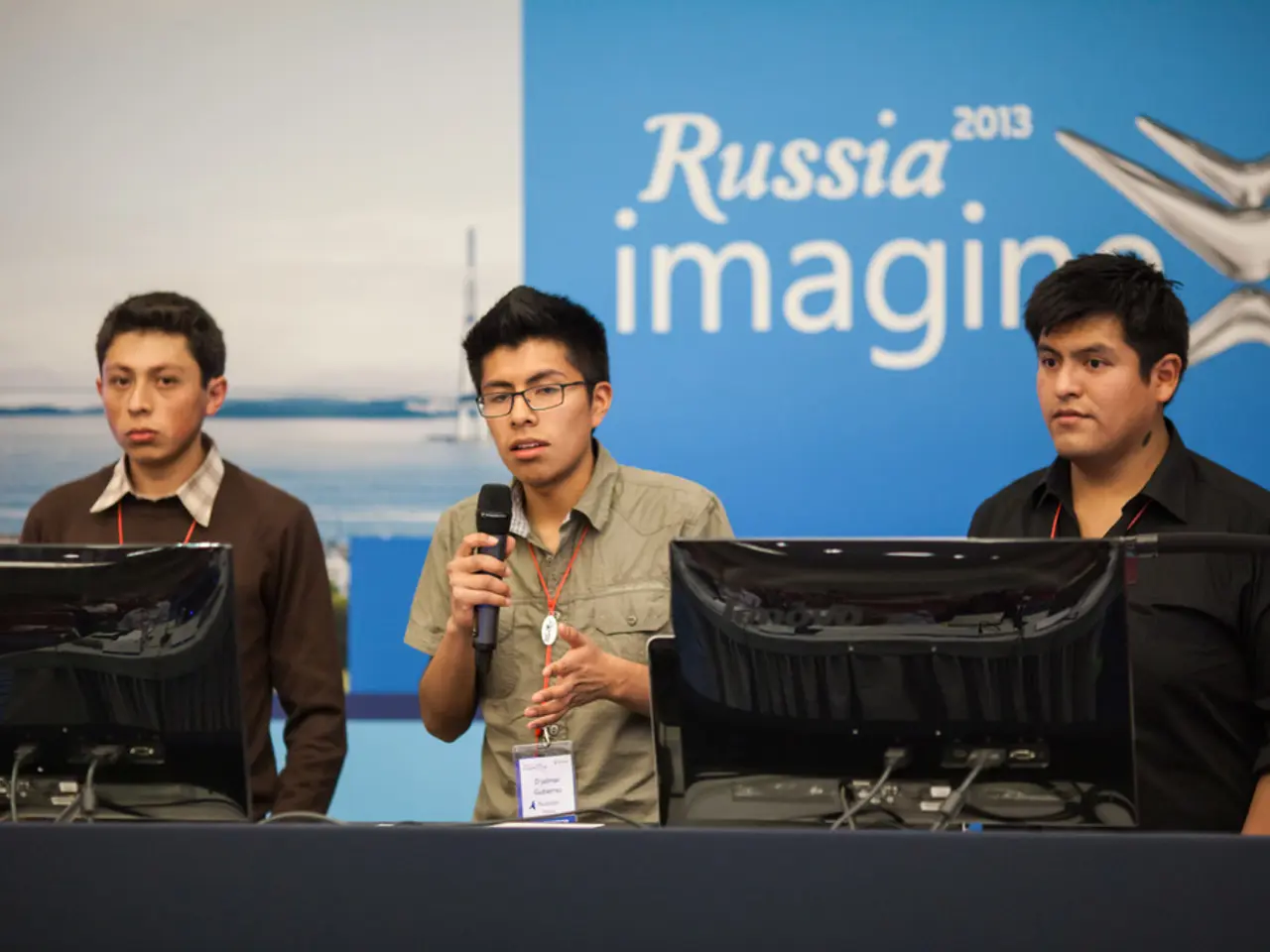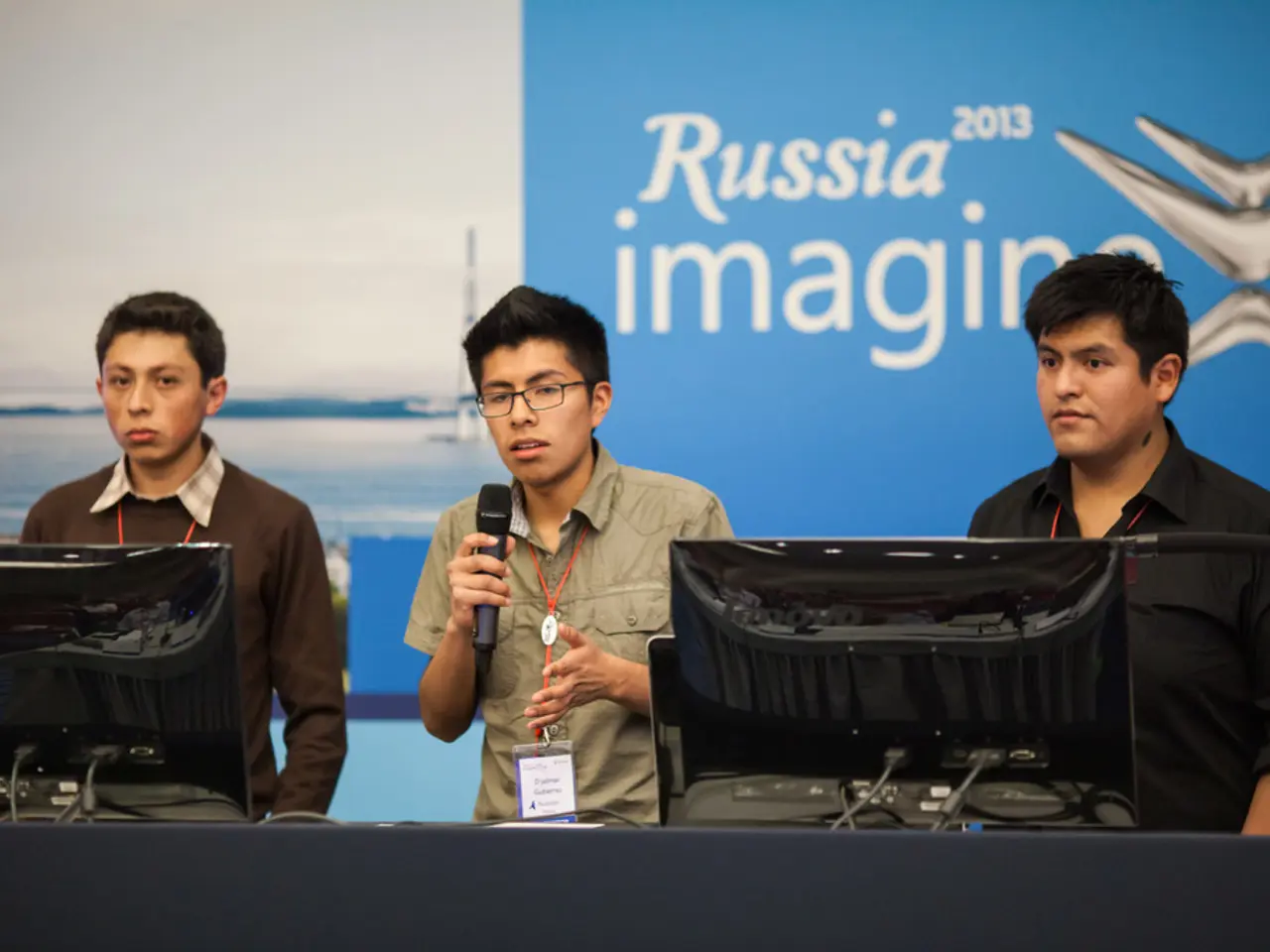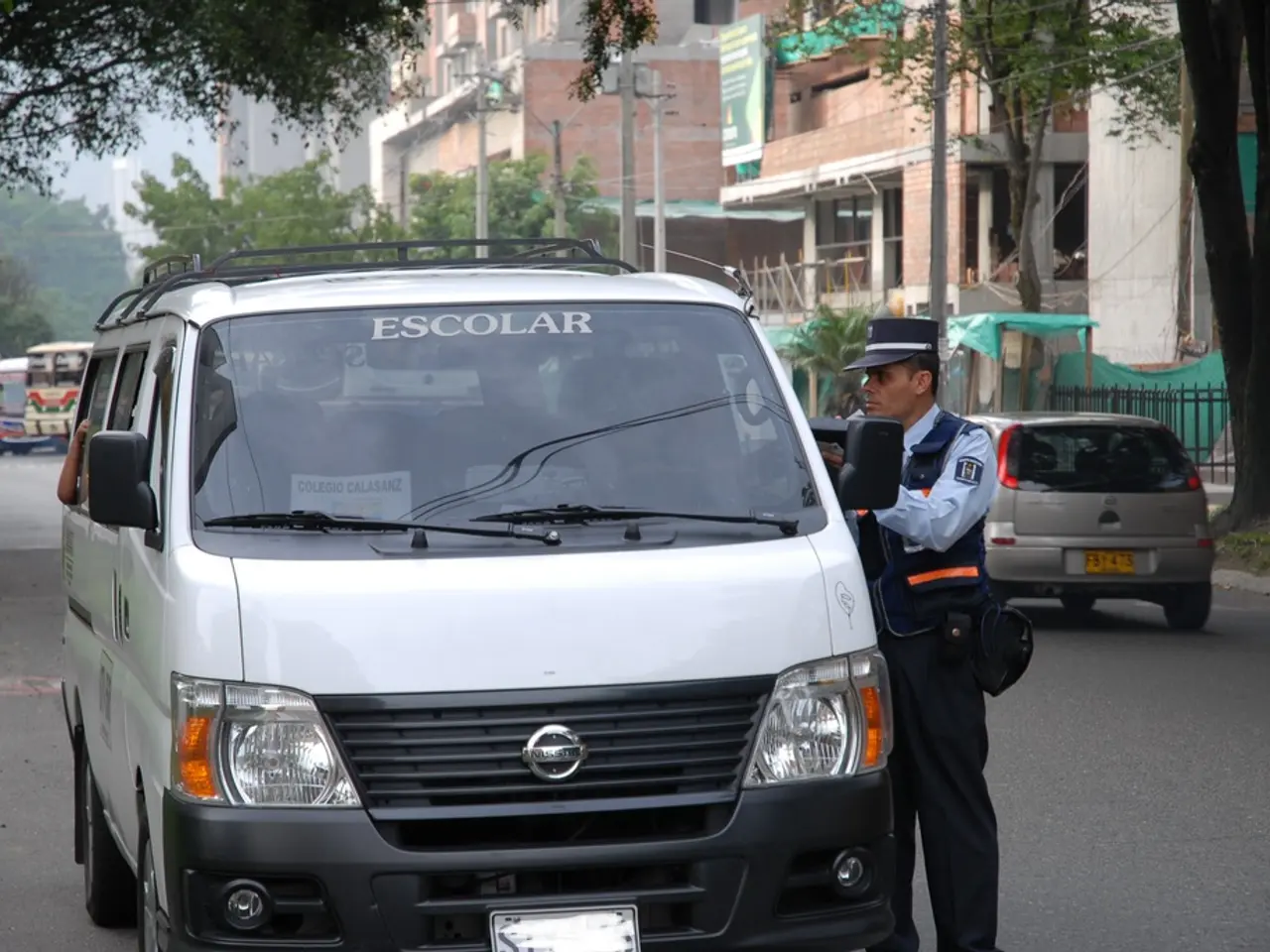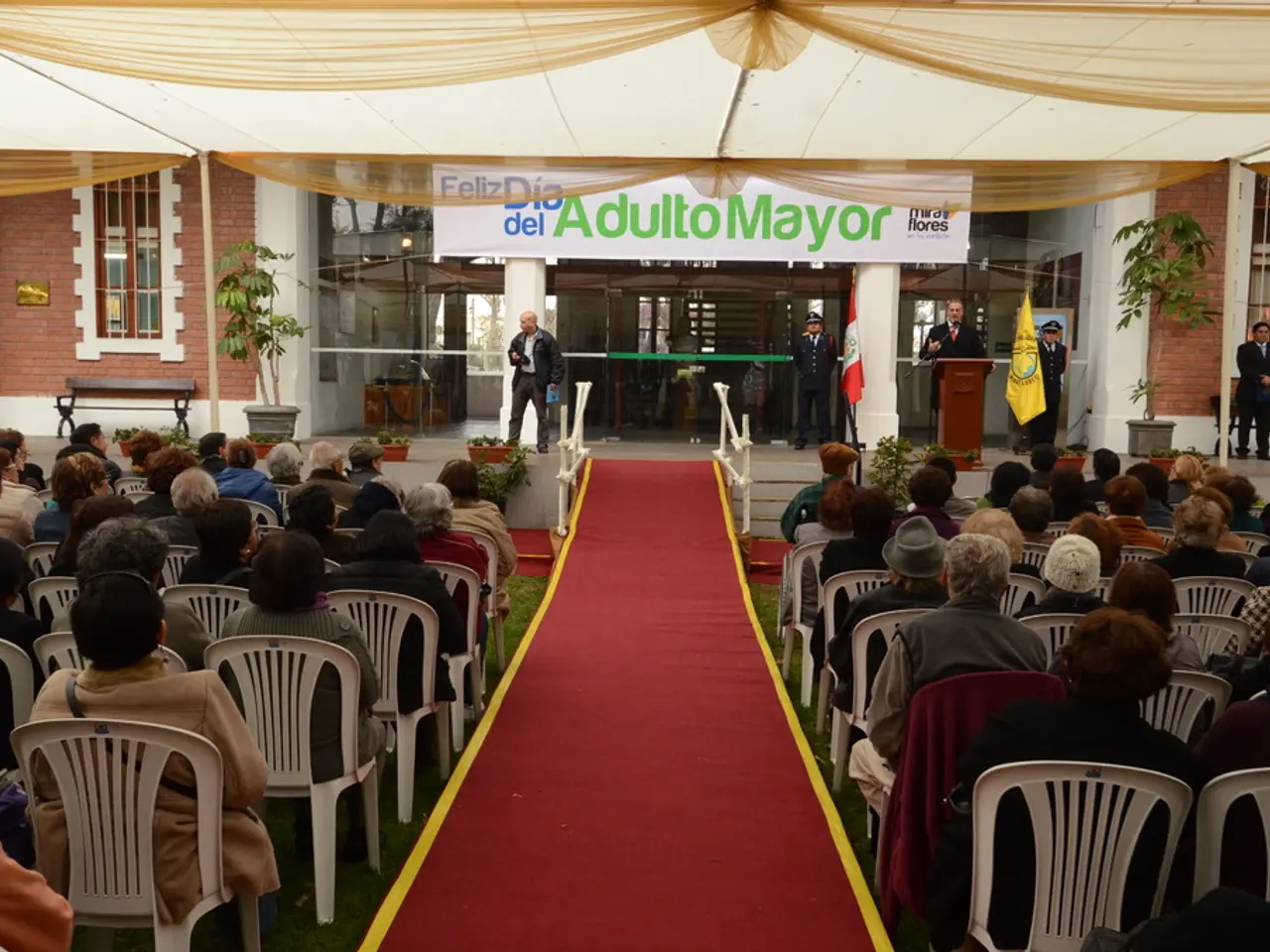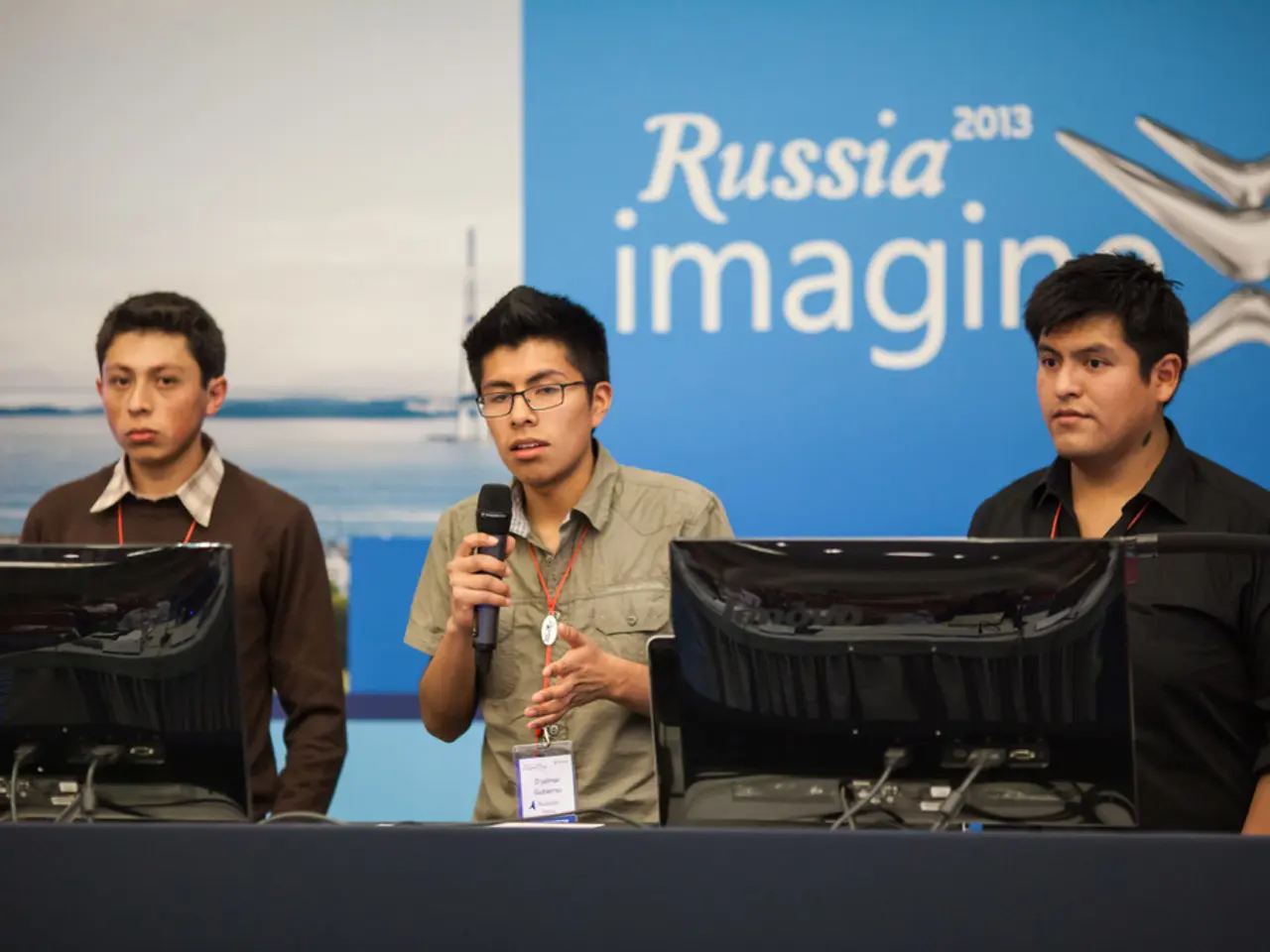Trump asserts significant advancement in discussions with Putin regarding Ukraine, according to Trump's statement.
In the ongoing saga of US-Russia negotiations for peace in Ukraine, a complex web of diplomatic maneuvers and economic sanctions is unfolding.
Ukrainian President Volodymyr Zelenskiy expressed optimism that pressure is bearing fruit on Russia, suggesting that Moscow is becoming more amenable to a ceasefire. This sentiment was echoed by Kremlin aide Yuri Ushakov, who described a meeting between US President Donald Trump's special envoy, Steve Witkoff, and Russian President Vladimir Putin in Moscow as "useful and constructive."
However, the path to peace remains fraught with challenges. Russia continues to resist substantive ceasefire agreements, instead insisting on conditions that would amount to Ukraine's full capitulation, such as preventing Ukraine from joining NATO, installing a pro-Russian government, and Ukraine's demilitarization. These demands have caused Russia to continually block meaningful progress and threaten to violate any ceasefire terms while blaming Ukraine.
European leaders, including Macron, Meloni, Merz, Tusk, Starmer, Stubb, and von der Leyen, have publicly supported US-led peace efforts and emphasized the inclusion of Ukraine and Europe in negotiations, calling for a ceasefire and respect for Ukraine's sovereignty as prerequisites.
The imminent Alaska summit between Trump and Putin has sparked controversy due to the exclusion of President Zelenskiy from direct participation, despite pressure from European allies to include him. Lasting peace negotiations would undoubtedly require Ukraine's involvement.
In a move to exert economic pressure on Russia, Trump announced increased tariffs on Russian goods and imports from countries that are still buying its oil. This decision followed reports of Russian air strikes killing at least 7 civilians and injuring at least 37 over the previous 24 hours, and damaging energy infrastructure in Odesa and Dnipropetrovsk regions.
To further bolster economic ties with Ukraine, Ukrainian Prime Minister Yulia Svyrydenko announced that the first three projects under a new US-Ukraine reconstruction investment fund should be launched within 18 months. Additionally, Svyrydenko signed off in April on the creation of a fund that gives US firms priority access to Ukraine's rare earth minerals and other natural resources.
The threat of secondary sanctions, while not explicitly detailed in the current search results, could play a significant role in influencing Russia's position. These sanctions, if implemented, would impose penalties on third parties that engage economically or politically with Russia, aiming to increase pressure on Russia to negotiate in good faith. However, specific current updates on secondary sanctions in this negotiation context are not yet available, leaving a gap in more precise analysis.
In conclusion, the road to peace in Ukraine is marked by both hope and challenges. The ongoing US-Russia negotiations are a testament to the complex interplay of diplomacy and economics in shaping international relations. As the situation evolves, it is crucial to monitor developments closely and support Ukraine's sovereignty and territorial integrity.
- The complex interplay of diplomacy and economics in the US-Russia negotiations for peace in Ukraine continues to be a topic of general news, with the threat of secondary sanctions looming as a potential tool for exerting pressure on Russia.
- Despite optimism for a ceasefire, war-and-conflicts in Ukraine persist due to Russia's resistance to substantive agreements and political conditions they impose, such as preventing Ukraine from joining NATO and installing a pro-Russian government, which further escalates tensions and threatens genuine progress.
